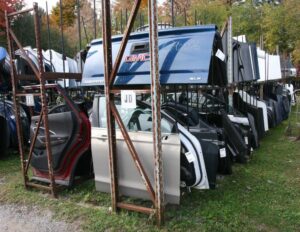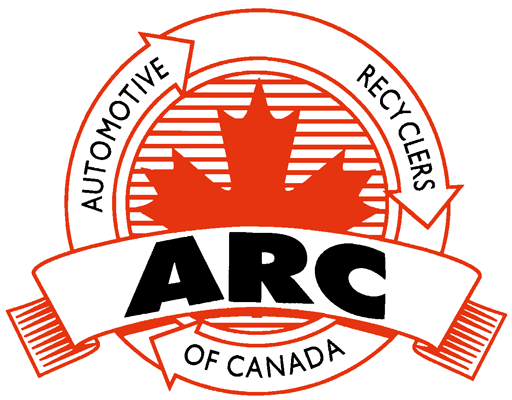Environmental initiatives backed by real data are changing the recycling landscape
We’ve seen over the last few years; how environmental sustainability practices continue to gain momentum within the automotive recycling sector. OARA released its own study in 2023 (The Environmental Benefits of Green Recycled Parts in Ontario in partnership with Oakdene Hollins, and this year, across the pond, in the U.K, the Vehicle Recyclers’ Association (VRA), has produced its own 60-page report. Similar to OARA’s own study, it shows the carbon emissions savings from using recycled vehicle parts for collision repairs, compared to using those that are newly manufactured.
Robust resource
 Also, and like the OARA report, VRA’s findings focus on how to obtain those parts, emphasizing the need for a robust resource in dismantling and processing vehicles. Yet while the Canadian study focused on 13 common parts, the VRA report looked at 61 different items and the global databases that identify and break them down into the various raw materials, as well as applying lifecycle assessments to have that third-party verification.
Also, and like the OARA report, VRA’s findings focus on how to obtain those parts, emphasizing the need for a robust resource in dismantling and processing vehicles. Yet while the Canadian study focused on 13 common parts, the VRA report looked at 61 different items and the global databases that identify and break them down into the various raw materials, as well as applying lifecycle assessments to have that third-party verification.
Additionally, with this report, VRA has traced the history of individual studies conducted and have included Canada’s among them. So, for us it’s very interesting to look at this process and see what we’ve done with our own studies, as well as analyze those from other countries and regions, including Japan, the U.S., and provinces such as Quebec, here in Canada.
What we’ve found, is that the results from these types of studies provide a great catalyst for discussion and have helped lead to events like the ARC Recyclers Roundtable that we’ve been hosting prior to the OARA Convention. These events have enabled us to bring not only recyclers but also insurers and collision repairers into our realm and get everybody speaking the same language when it comes to initiatives such as Environmental and Social Governance.
Metrics and documentation
From there, we’ve taken it a step further, in not only talking about we’re doing related to ESG but putting metrics behind it and documenting the results. Car-Part has picked our study and reworked the entire Car-Part Pro, parts procurement system, around the OARA study. Essentially what that means is that the 13 parts we identified in the report are now tagged with specific amounts of Greenhouse Gas (GHG) emissions and CO2 equivalent reductions. This provides decision makers with real data, bringing environmental sustainability right to their desktop. Armed with this information, we can clearly see what the savings are using recycled parts compared to new manufactured ones, as well as the aggregation of GHG savings over a specific claim or repair.
Not only does this provide real information, it also facilitates more in-depth conversations with insurers and even repairers, which have already begun. And, because VRA took a global approach with their report, it has given us more confidence in being able to add to our own data, and businesses such as Car-Part which can provide more information related to the true environmental savings recycled parts offer. The USA is undertaking another study that should push the data even further.
These studies and this data allows us to further the conversations and initiatives at the association level— but they also enable our members to understand that they’re participating in something bigger than their local business and, that this information is valuable for insurers and repairers. It’s also a validation that we are participating in what is a global industry and one where we can actively collaborate and learn from each other.
Article originally appeared in Autosphere Magazine December 2024
